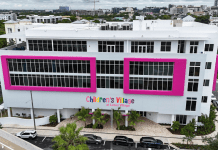|
Getting your Trinity Audio player ready...
|
 In a recent election, just 11 percent of eligible voters in the City of Miami’s District 4 turned out to cast ballots in a special election. Let that sink in. Out of every 100 adults who could have helped decide their city’s future, 89 voters stayed home.
In a recent election, just 11 percent of eligible voters in the City of Miami’s District 4 turned out to cast ballots in a special election. Let that sink in. Out of every 100 adults who could have helped decide their city’s future, 89 voters stayed home.
In a city battling corruption scandals, facing deepening housing and affordability crises, and watching basic services suffer, residents were handed a rare opportunity to use the most powerful tool in a democracy — their vote. And they chose not to do so.
Some will try to shift the blame. It was raining. The election wasn’t well publicized by the Department of Elections. They will point to a highly negative campaign, low media coverage, or uninspiring candidates. All of these criticisms are partially valid.
Our civic institutions, local media failed to generate enough awareness, passion, or urgency. Also, the winner was supported by a highly negative well-funded effort that may have turned off a few people. But this kind of chronic civic neglect is bigger than any one group. At some point, we must say out loud what many are afraid to admit: Miami’s District 4 residents themselves bear the lion’s share of responsibility for allowing dysfunction to thrive.
It is not too much to ask that adults set aside 20 minutes a couple of times a year to engage in a civic duty that shapes their community. Voting is not a heavy lift. Florida makes it relatively easy. Early voting, vote-by-mail, election day voting — all are available.
Yet in a city where complaints about leadership are constant, most people didn’t bother to show up for a local election.
And so we return to the same headlines we have seen for years: City Hall corruption, self-
dealing commissioners, shady deals, and neighborhoods left behind. Miami’s government didn’t become dysfunctional by accident. It became dysfunctional because the people of Miami let it be.
The problem with low-turnout elections is that they often get captured by special interests (Joe Carollo spent hundreds of thousands of dollars for the winner) or hyper-mobilized fringe voters (a small number of Republican vote-by-mail participants). That’s how unqualified, ethically compromised, or ideologically extreme candidates end up in power.
When most people check out, the few who remain get to choose for everyone else. And in Miami, that dynamic has become tragically common.
This isn’t just about good governance. It’s about basic accountability. If voters don’t show up, then crooked officials have no reason to fear consequences. They know the outrage will be short-lived. They know the public won’t remember by the next election — or won’t vote even if they do. When only 11 percent of voters show up, there is no accountability. There is no pressure to deliver. There’s no democracy, really.
This is not a partisan issue. It’s a civic crisis. Whether you are liberal or conservative, rich or poor, born here or an immigrant — if you live in Miami’s District 4 and did not vote in the election, you gave away your voice. Worse, you gave your power to people who may not have your best interests at heart.
The truth is ugly, but necessary. In a democracy, people get the government they deserve.
And right now, Miami is getting exactly that.
ABOUT US:
For more Miami community news, look no further than Miami Community Newspapers. This Miami online group of newspapers covers a variety of topics about the local community and beyond. Miami’s Community Newspapers offers daily news, online resources, podcasts and other multimedia content to keep readers informed. With topics ranging from local news to community events, Miami’s Community Newspapers is the ideal source for staying up to date with the latest news and happenings in the area.
This family-owned media company publishes more than a dozen neighborhood publications, magazines, special sections on their websites, newsletters, as well as distributing them in print throughout Miami Dade County from Aventura, Sunny Isles Beach, Miami Beach, Coral Gables, Brickell, Coconut Grove, Pinecrest, South Miami, Kendall, Palmetto Bay, Cutler Bay and Homestead. Each online publication and print editions provide comprehensive coverage of local news, events, business updates, lifestyle features, and local initiatives within its respective community.
Additionally, the newspaper has exclusive Miami community podcasts, providing listeners with an in-depth look into Miami’s culture. Whether you’re looking for local Miami news, or podcasts, Miami’s Community Newspapers has you covered. For more information, be sure to check out: https://communitynewspapers.com.
If you have any questions, feel free to email Michael@communitynewspapers.com or Grant@communitynewspapers.com.





